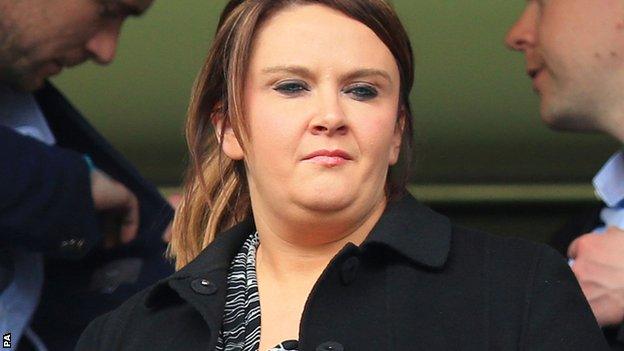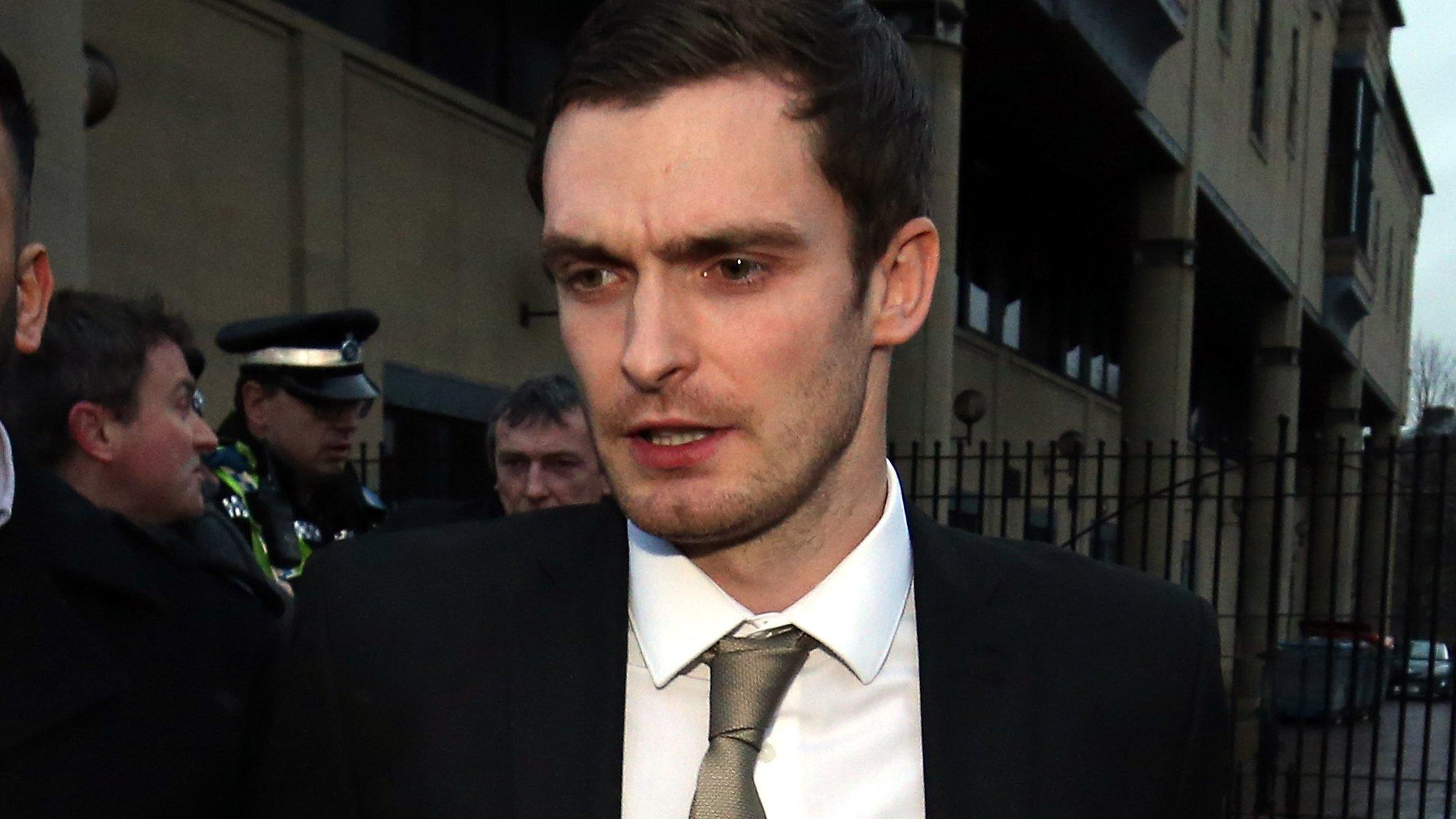Adam Johnson: Sunderland chief executive Margaret Byrne resigns
- Published

Margaret Byrne was appointed Sunderland chief executive in 2011
Sunderland chief executive Margaret Byrne has resigned following the Adam Johnson child abuse case.
Johnson, 28, faces four to 10 years in jail after being found guilty of sexual activity with a 15-year-old girl.
The Premier League club has been criticised for letting the England winger play after his arrest.
Byrne, chief executive since 2011, said that decision "was a serious mistake", with the club adding: "We are so very sorry for this."
In a statement, Sunderland said Johnson's victim had been "very badly let down first and foremost" by the player and "his despicable actions", but also "by the club they support".
"Mr Johnson lied to the club; he also lied to our fans and they have every right to feel aggrieved by this," it added.
Adam Johnson's victim said in her written statement that she had "lost all her confidence"
How did Sunderland handle the Johnson case?
The club initially suspended him in March 2015 but lifted that ban after just 16 days.
He was eventually sacked on the eve of his trial last month, when he admitted grooming the girl and one charge of sexual activity.
In the intervening 10 months, he played 28 times for the Black Cats.
Byrne, who joined Sunderland in 2007, said in a statement: "Contrary to what has been suggested, I did not understand that Mr Johnson intended to change his plea at trial, or at all.
"I was astounded when he did plead guilty.
"I accept that Mr Johnson should not have been permitted to play again, irrespective of what he was going to plead.
"It was a serious error of judgement and I accept full responsibility for this."
Margaret Byrne statement key points |
|---|
Saw a note confirming Adam Johnson had kissed the victim and communicated with her |
She did not share this information with anybody including the board |
Told Johnson would defend the charges and was astounded when he pleaded guilty to some |
Accepted Johnson should not have played again, irrespective of what he was going to plead |
Recognised the decision to allow him to continue to represent the club was a serious mistake |
Admitted it was a serious error of judgment and accepts full responsibility |
What did Byrne know?
Durham Police said Byrne was told on the day of Johnson's arrest - 2 March, 2015 - that he had allegedly messaged and kissed the schoolgirl.
Byrne did not address this in her statement but did say she saw a note in May 2015 that recorded "that Mr Johnson had kissed the victim and communicated with her".
"I did not share this information with anybody, including the board of Sunderland AFC," she added.
During his trial, Johnson, who has played 12 times for England, also claimed the club knew he had kissed the girl.
But the club has "strongly" denied claims it knew he planned to admit any of the charges before his court case began in Bradford.
Who is Margaret Byrne? |
|---|
Born in Armagh, Northern Ireland |
A qualified solicitor and former criminal lawyer |
Joined Sunderland in a secretarial role in 2007 |
Appointed Sunderland chief executive at the age of 31 in 2011 |
Is a Premier League representative on the Football Association Council and a member of the Premier League's advisory board |
Listed in August 2015 as the 18th most influential woman in British sport by The Independent |
Analysis
BBC sports editor Dan Roan:
Margaret Byrne may have enjoyed a meteoric rise in the male-dominated world of the Premier League, but her fateful decision to allow Adam Johnson to resume his playing career last year made her downfall inevitable.
Last week, the £600,000-a-year executive went to ground, hoping the storm would subside, but that strategy, along with an evasive club statement following Johnson's trial, merely fanned the flames of crisis.
Byrne may not have been a household name, but she was one of the game's most powerful and well-connected women, and given her background as a lawyer, her mistake will perhaps come as a surprise.
However, her judgement has come under scrutiny before, the handling of the controversy surrounding the politics of former Sunderland manager Paolo di Canio in 2013 also heavily criticised.
The club and its elusive American owner Ellis Short will now hope her departure allows a line to be drawn, but Sunderland's reputation has been damaged, and questions over its conduct remain.
He had a responsibility to be a role model: Det Insp Aelfwynn Sampson of Durham Police
- Published11 February 2016

- Published6 March 2016

- Published3 March 2016

- Published20 June 2016
